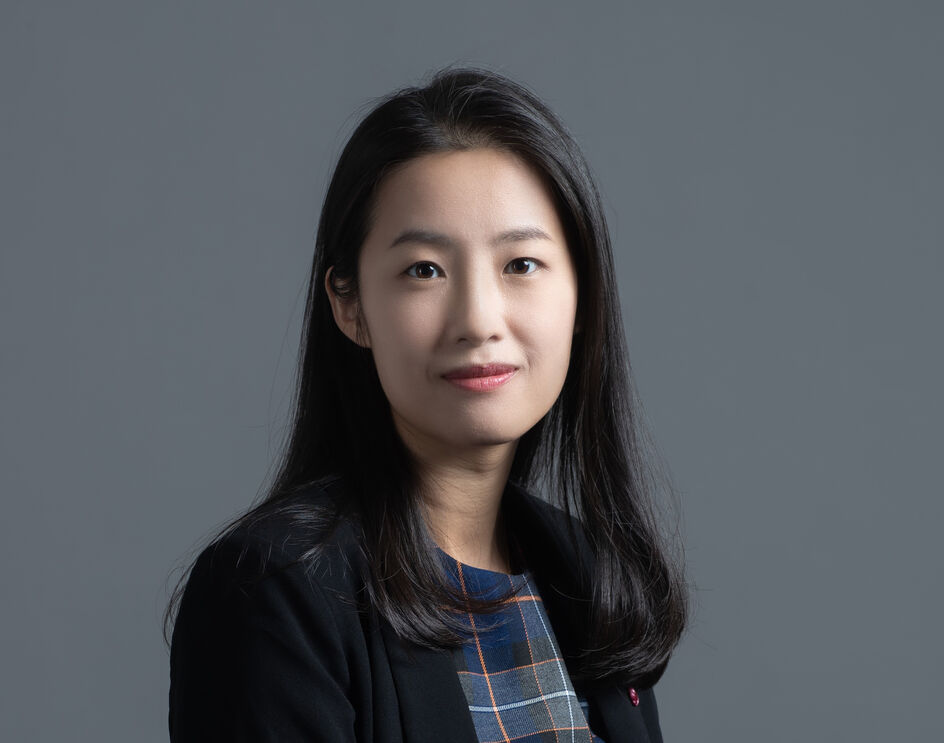"It has been exciting joining Westlake University, where colleagues are conducting innovative research in different areas of natural and mathematical sciences. I have been enjoying my work with my lab members, and wish that our research will contribute to this great environment."
Biography
Dr. Yue Zhang graduated from the School of Pharmacy, Huazhong University of Science and Technology in 2014. She then obtained PhD degree in NanoEngineering at the University of California San Diego in 2019. After that, she finished postdoc training at University of California, Los Angeles. In 2022, Dr. Zhang joined the School of Engineering at Westlake University as an Assistant Professor and lead the Immune Modulation lab.
History
2022
Assistant Professor, School of Engineering, Westlake University
2019
Postdoctoral scholar, Bioengineering, University of California, Los Angeles
2015
Ph.D. NanoEngineering, University of California San Diego
2014
M.S. NanoEngineering, University of California San Diego
2010
B.S. School of Pharmacy, Huazhong University of Science and Technology
Research
The innate immune system is the first line of defense against pathogenic microbes. Dysregulation of the innate immune system is closely associated with many diseases such as autoimmune diseases, allergic reactions, and cancer. As a key element of the innate immune system, antimicrobial peptides (AMPs) have been found to play pathogenic roles in autoimmune disease. Although AMPs are usually known as a protective mechanism when they kill bacteria via membrane permeation. However, recent studies show that AMPs induce autoimmune reaction by promoting the recognition of self-deoxyribonucleic acid (dsDNA) by Toll-like receptor and activate the downstream inflammatory responses, a mechanism involving in the psoriasis and rheumatoid arthritis.
As a type of chaperone molecule, AMPs helps us to understand why different people have quite different immune reaction to the same immune ligand. Designing drug that specifically inhibit these 'chaperone molecules' allows timely correction of immune disorder without affecting the normal immune reaction. In the future, understanding the structure and function relationship of these 'chaperone molecule' can helps with the discovery the unknown functions of known proteins.
Dr. Zhang's main research interests covers the following field:
1) Discover the molecular features of membrane-active peptides with artificial intelligence.
2) Integrate the membrane-active peptide sequences in drug carrier to fulfill challenging delivery task.
3) Investigate the immunomodulatory effect of peptide-immune ligand complex.
Representative Publications
1. Zhang, Y.; Chen, Y.; Lo, C.; Zhuang, J.; Angsantikul, P.; Zhang, Q.; Wei, X.; Zhou, Z.; Obonyo, M.; Fang, R.; Gao, W.; Zhang, L. "Inhibition of pathogen adhesion by bacterial outer membrane-coated nanoparticles", Angewandte Chemie International Edition 2019, 58, 11404-11408.
2. Karshalev, E.; Zhang, Y.; Bsteban-Fernandez de Avila, B.; Beltran-Gastelum, M.; Chen, Y.; Mundaca-Uribe, R.; Zhang, F.; Nguyen, B.; Tong, Y.; Fang, R.; Zhang, L., Wang, J. "Micromotors for active delivery of minerals toward the treatment of iron deficiency anemia", Nano Letters 2019, 19, 7816-7826. (co-first author)
3. Zhang, Y.; Miyamoto, Y.; Ihara, S.; Yang, J.; Zuill, D.; Angsantikul, P.; Zhang, Q.; Gao, W.; Zhang, L., Eckmann, L. "Composite thermoresponsive hydrogel with auranofin-loaded nanoparticles for topical treatment of vaginal trichomonad infection", Advanced Therapeutics 2019, 2, 1900157.
4. Zhang, Q.; Dehaini, D.; Zhang, Y.; Zhou, J.; Chen, X.; Zhang, L.; Fang, R.; Gao, W.; Zhang, L. "Neutrophil membrane-coated nanoparticles inhibit synovial inflammation and alleviate joint damage in inflammatory arthritis", Nature Nanotechnology 2018, 13, 1182-1190.
5. Zhang, Y.; Gao, W.; Chen, Y.; Escajadillo, T.; Ungerleider, J.; Fang, R.; Christman, K.; Nizet, V.; Zhang, L. "Self-assembled colloidal gel using cell membrane-coated nanosponges as building blocks", ACS Nano 2017, 11, 11923-11930.
6. Zhang, Y.; Zhang, J.; Chen, M.; Gong, H.; Thamphiwatana, S.; Eckmann, L.; Gao, W.; Zhang, L. "A bioadhesive nanoparticle-hydrogel hybrid system for localized antimicrobial drug delivery", ACS Applied Materials & Interfaces 2016, 8, 18367-18374.
7. Zhang, Y.; Zhang, J.; Chen, W.; Angsantikul, P.; Spiekermann, K.; Fang, R.; Gao, W.; Zhang, L. "Erythrocyte membrane-coated nanogel for combinatorial antivirulence and responsive antimicrobial delivery against Staphylococcus aureus infection", Journal of Controlled Release 2017, 263, 185-191.
Contact Us
Our group engages in cross-disciplinary research spanning nanomaterials, protein design, membrane physics, microbiology and machine learning. We are now accepting applications for postdoc, research assistant, visiting scholar and graduate student.
Website: https://yz.lab.westlake.edu.cn/ for more information.
Please send your CV and brief research background introduction to Dr. Yue Zhang (zhangyue59@westlake.edu.cn) and CC Ms. Jiaqing Le (lejiaqing@westlake.edu.cn)
